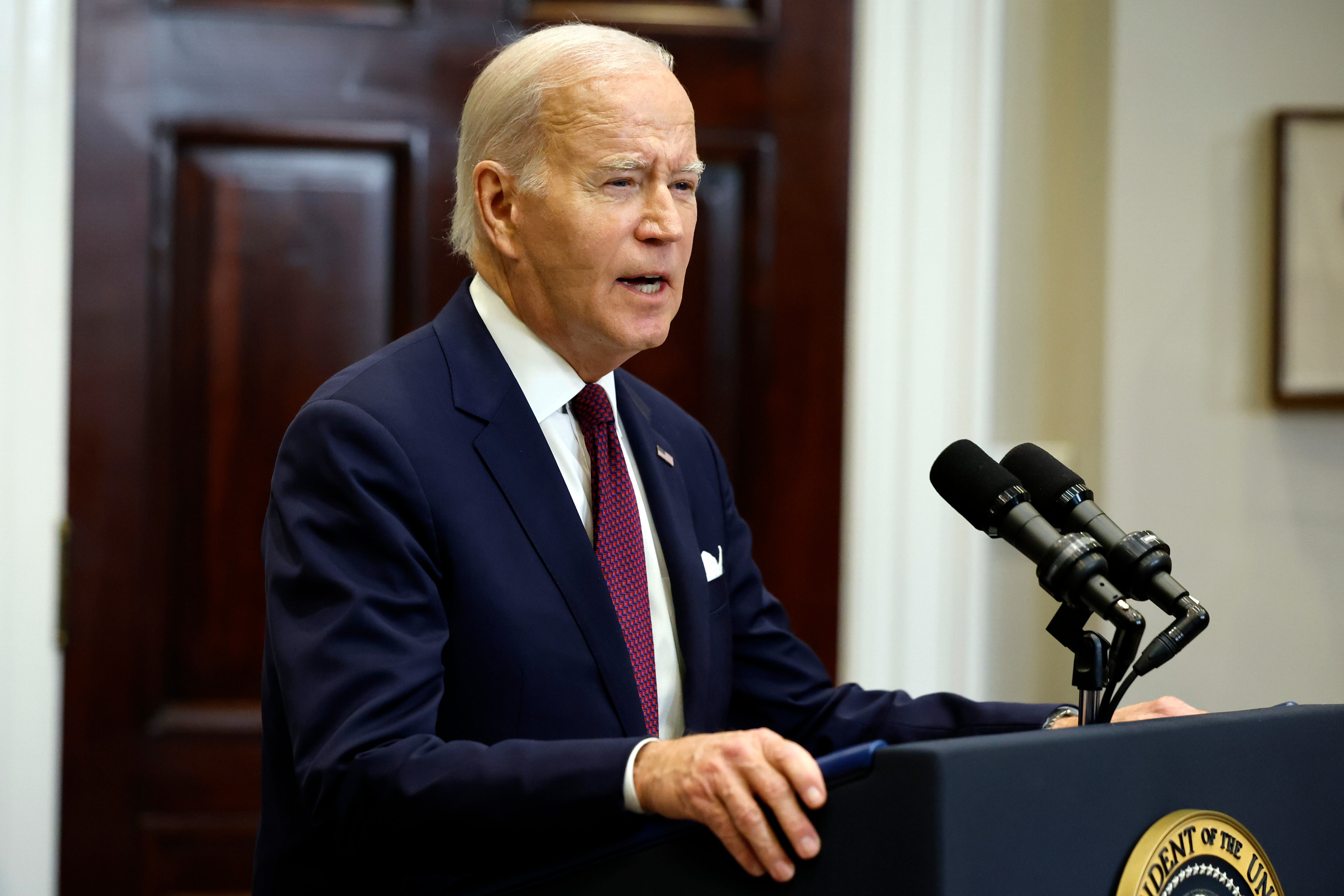President Joe Biden, responding to the Supreme Court’s decision Thursday that severely restricts how colleges can consider a student’s race in the admissions process, called on colleges and universities to find alternative ways to create racially diverse student bodies.
“The court has effectively ended affirmative action in college admissions, and I strongly, strongly disagree with the court’s decision,” Biden said in a Thursday news conference. “We cannot let this decision be the last word.”
In lieu of considering race, Biden urged colleges to give strong consideration to the adversities students have faced, such as whether they overcame hardship or racial discrimination and whether they come from a low-income family. Colleges could also consider where a student grew up and where they attended high school, Biden said.
Already, some college recruitment programs zero in on communities where many low-income Black and Latino students live as part of their efforts to boost student diversity on campuses. Biden’s comments appeared to be aimed at preserving those efforts.
Colleges “should not abandon their commitment to ensure student bodies are of diverse backgrounds and experiences that reflect all of America,” Biden said.
While colleges can no longer explicitly consider a student’s race as part of a holistic admissions review, the court’s opinion does allow colleges to look at how race affected a student’s life, so long as it’s tied to a unique skill or character they’d bring to the school. Discussions like that typically come up in an applicant’s personal essay.
In a fact sheet, White House officials said the Education and Justice departments would issue guidance within the next 45 days to help colleges and universities navigate which admissions practices and student support programs “remain lawful.” That will likely involve poring over the Supreme Court’s most recent and past decisions on affirmative action, and looking for any wiggle room.
In his 6-3 opinion for the majority, Chief Justice John Roberts wrote that Harvard’s and the University of North Carolina’s race-conscious admissions policies were unconstitutional because they did not have “sufficiently focused and measurable objectives” that warranted the use of race; they used race in a “negative manner” that involved racial stereotyping; and their policies did not have “meaningful end points.”
“That is a list of faults with the UNC and Harvard programs, but it could be read as a blueprint for what would pass muster in some subsequent lawsuit,” said Anthony S. Chen, an associate professor of sociology at Northwestern University, who is publishing a book on the history of affirmative action next year.
But the ruling “doesn’t tell us specifically, well, what does a ‘sufficiently focused and measurable objective’ look like?” Chen added.
Federal guidance — and potentially future litigation — could help fill in that gap.
Some university officials say they will be looking for workarounds.
At the University of Colorado’s School of Medicine, which regularly gets 10,000 applications for 184 spots, that could include putting more weight on essays and responses to questions about past experiences, advocacy work, and personal attributes, said Shanta Zimmer, the senior associate dean for education.
Those questions can help illuminate whether an applicant speaks another language, whether they’ve had to seek primary care in an emergency room, whether they are the first in their family to go to college, or whether they have worked with community groups to improve health outcomes for marginalized communities, Zimmer said.
Given the correlation between patient health outcomes and the race and ethnicity of health care providers, admitting diverse medical students is “not just about what the class looks like,” Zimmer said. “It’s about how patients get healthy and how they survive, literally.”
Notably, the Supreme Court carved out an exemption that allows military academies, such as West Point, to continue to consider race in admissions, citing their “potentially distinct interests.” In her dissent, Justice Sonia Sotomayor said the exemption was too narrow, given that civilian universities could also have national security interests in maintaining racial diversity.
In his speech, Biden directed the Education Department to analyze which admissions practices are likely to produce a more inclusive and diverse student body, and which practices “expand privilege instead of opportunity,” such as “legacy” admissions policies that favor the children of alumni.
The Education Department will release a report in September, White House officials said, that will lay out strategies for how to boost diversity and use student adversity as a factor in admissions. The report will also detail practices that hurt the admissions chances of students from “underserved communities,” and explain how to run outreach and recruitment programs so they still create diverse applicant pools.
After the Supreme Court’s ruling, several school leaders and education equity advocates called on colleges to get rid of legacy admissions that tend to favor wealthier, white students as a first step.
Opponents of legacy admissions include Shavar Jeffries, a civil rights lawyer who heads the KIPP charter school network, which enrolls some 120,000 students nationwide, most of whom are Black and Hispanic students from low-income families.
“Legacy admissions transfer privilege across generations, disfavoring first-generation KIPP students,” Jeffries said in a statement. “The Supreme Court’s decision should be a wake-up call for colleges to reimagine their admissions practices.”
Erica Meltzer contributed reporting to this article.
Kalyn Belsha is a national education reporter based in Chicago. Contact her at kbelsha@chalkbeat.org.






